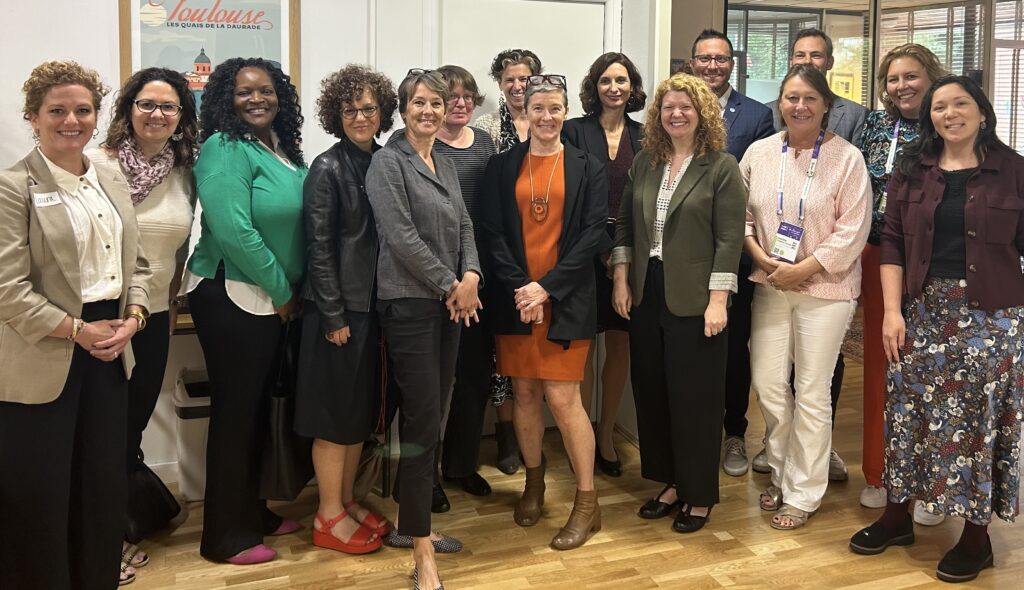
Dickinson Partnership
In 2020, IIE and Dickinson College embarked on a new partnership developing a virtual workshop series. This collaboration leverages the strengths of two institutions with a common commitment to international education and a shared mission of building inclusive, equitable and sustainable communities. Both institutions bring deep expertise and a global network that provides an opportunity to reimagine an international education framework that incorporates global, intercultural and equity/inclusion lenses.
- ‘Moving From Inclusivity Talk to Equity in Action in International Education Leadership’ (2020-2021): IIE and Dickinson conducted workshops examining the under-explored intersection between intercultural and global learning and diversity, equity, and inclusion—work that has been traditionally siloed—and focused on practical application for professionals to initiate action on their campuses and in their organizations. The two-day workshops attracted nearly 230 participants from 83 institutions located in 5 countries.
- ‘Building Bridges: Committing to Global Equity and Justice in International Education’ (2022): This expanded, more robust workshop series took a deeper dive into building equitable and inclusive communities aiming to bridge the gap by bringing practitioners, scholars, and learners from across disciplines, backgrounds, and cultures together to accelerate learning and co-create collaborative approaches to build trust, equity, and justice across cultures for meaningful change locally and globally. Three one-day workshops took place in the Spring, and 43 participants representing 32 institutions/organizations, across the U.S. and from India and Nepal, committed their time in and out of the workshops to learning, sharing, and applying knowledge and the experience to their work and communities to move the needle towards change.
- ‘How do you know you are meeting your Global DEI Outcomes?: Assessing and Communicating Impact‘ (2022): Conducted in December 2022, IIE and Dickinson designed this virtual workshop to help demystify the process of assessment and evaluation by providing creative ideas, a roadmap and case studies so that participants can develop or enhance their own strategies. One of the more daunting elements of Global DEI work at our institutions and organizations can be how we assess and communicate our progress. It takes a great deal of time and energy to do the work of making our institutions, offices, programs, policies, and practices more inclusive and equitable, so we often neglect the important work of assessing and communicating our progress. What do we mean by assessment? A better understanding of the data and stories one may already have and what one may still need to set goals and outcomes and measure progress.
In 2023, the IIE Center for Access and Equity and Dickinson released a new, open-access publication offering insights and case studies about advancing DEIA in international higher education. Models of Change: Equity and Inclusion in Action in International Education collates and summarizes practical guidance for professionals seeking to build inclusive, equitable, and sustainable communities within their higher education institutions and among the populations they serve.
As we continue this long-term partnership of cultivating a community of practice for international higher education professionals, in 2024 we initiated, “What Next? A Dialogue on Equity and Justice in International Education,” a global dialogue series building off what we’ve learned in previous years to discuss how we have changed and how we measure success. This regional approach values the nuance of geographical contexts while also comparing each conversation’s themes for throughlines. These critical conversations are contributing to a growing body of knowledge and practices that will help inform decisions about the future of access and equity in international education, which we will share in a forthcoming publication. We have conducted dialogues for North America and Europe and look forward to additional regional conversations in 2025.